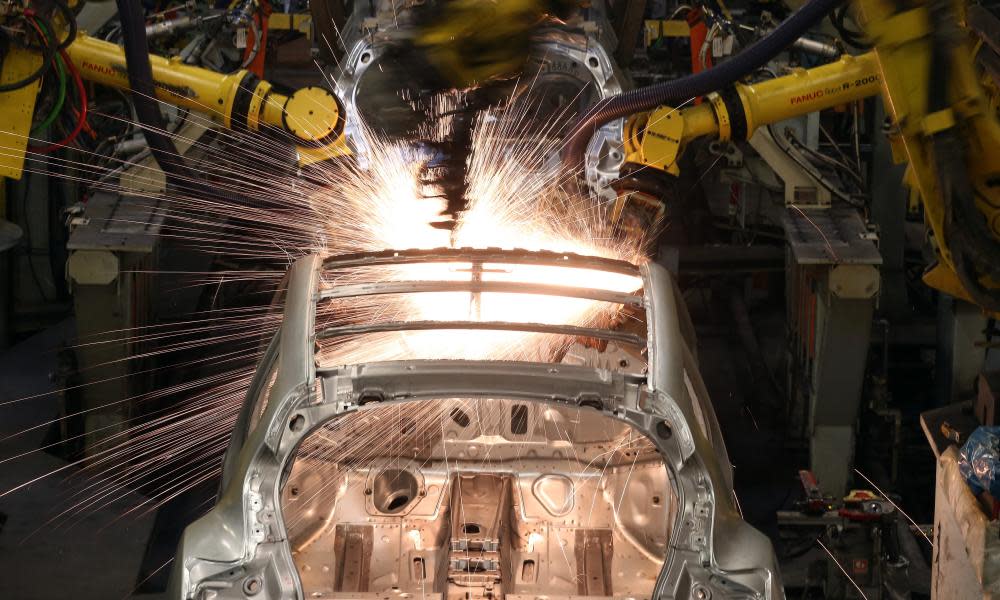Brexit could cut manufacturing exports by a third, experts warn

Versions of Brexit under consideration by the cabinet could cut British manufacturing exports by up to a third, according to new economic modelling that finds leave-voting areas such as Sunderland, Coventry, Derby and County Durham suffering most as a result.
As a special subcommittee of the cabinet meets on Wednesday to agree trade priorities in the absence of a customs union with the EU, pressure is growing on the government to spell out the implications of a go-it-alone strategy for industrial regions of the country.
A team of trade experts at the University of Sussex has built on recently leaked estimates from the Treasury by analysing the relative impact of the different scenarios now in vogue on 122 manufacturing sectors.
The paper, by the UK Trade Policy Observatory, finds that even if the government is able to strike free trade agreements (FTAs) with every other major country, it would still lead to falls in exports of 34% and 30% for the food and textiles industries respectively if they face new barriers with their main markets in Europe.
“Even achievement of the (literally) incredible objective of signing FTAs with every non-EU country would not compensate for the loss of the relationship with the EU,” write the team, led by Prof Alasdair Smith.
While food processing would enjoy domestic sales increases that would offset the blow, the overall impact of relying solely on trade deals outside Europe would be to cut all manufacturing exports by 13% and reduce total output by 3.6% as sectors such as carmaking struggle to gain access to markets, according to the research.
“Areas of the country where there are many jobs in food processing may see gains in output, but most manufacturing jobs are in sectors which are at risk from Brexit, and a list of the areas most at risk – Sunderland, Birmingham, Coventry, Derby, Cheshire East, Solihull, and County Durham – show the importance of the motor industry in assessing the risks of Brexit,” they added.
Despite mounting pressure from the business community, the government’s official strategy is still to find “frictionless” ways of offsetting the pain of leaving the EU single market and customs union as well as striking new international deals.
“We will be leaving the EU and the customs union and it is not government policy to be members of the customs union or a customs union,” said a spokesman this week. “[A] paper in August set out two possible options and they are a highly streamlined customs arrangement and a new customs partnership with the EU.”
But some Brexiters such as Jacob Rees-Mogg go further still and argue that the government should increase the relative boost from new markets by embracing a radically unilateral approach to free trade.
Rees-Mogg cites research by free-traders such as Prof Patrick Minford of Cardiff University, who has argued the subsequent benefit to consumers would offset the possible “elimination” of manufacturing in such a scenario.
“Over time, if we left the EU, it seems likely that we would mostly eliminate manufacturing, leaving mainly industries such as design, marketing and hi-tech,” Minford wrote. “But this shouldn’t scare us.”
However, the latest research by Sussex University argues that the damage to manufacturing from lost access in Europe would hit the parts of the economy most valued by politicians.
“High, medium-high and medium R&D intensive sectors all seem likely to suffer more from the effects of Brexit,” they wrote. “This is an important result since the UK government’s industrial strategy seeks to promote high-tech sectors: Brexit might make it harder to achieve this objective.”

 Yahoo News
Yahoo News 
